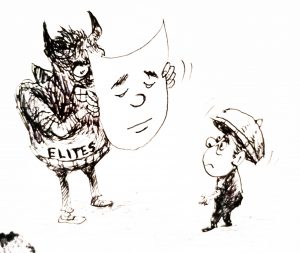If what we mean by Holy Week is a week of living away from all forms of wickedness and irregularities, then what we need is not just one week, but a year-long exercise of holy living, given the kind of moral standard that we have in our country today.
That’s what the Bible prescribes, anyway—holy living at all times, and not just for seven days of every year. This is too short for people to practice righteousness, though they may religiously avoid committing sins during this period. Since the Bible, being the Word of God, ought to be followed by all those who profess belief in God, then such righteous living should thus characterize the lives of our people, particularly those in authority.
Surely, it is good as futile for people to try behaving like angels for a week, but living like devils the rest of the year. What can one week of holy living do in the collective efforts at implementing reforms in all government agencies that, historically, have been contaminated with various forms of corruption and irregularities? Does it not take year-round to correct anomalies that have been rooted in society? Of course, it does, even more if possible.
Per religious observance in the Roman Catholic world, Holy Week will remain in place and will in no way extend as of late. This we do not suggest to happen literally. What we recommend is upright living, which may be equivalent to holiness, as a way of life for all, especially to those who have access to power, money, and influence, for it is they who are in the right position to impose judgment and to implement reforms of widespread magnitude. This they should observe, nor only during the lent, but throughout the year.
May this week be the beginning of those genuine transformations for the better that should take place in corruption-laden agencies. May it be a turning point of a holy year in their lifestyles and moral standing that could translate to their leadership and public service. May that holiness that God requires prove to be permanent, not just something wearable that one could put on and off when necessary.




